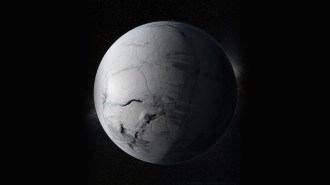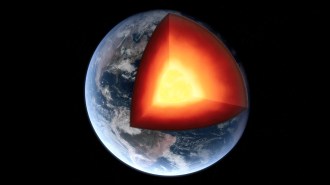Water contaminated with manganese not only tastes vile but also can limit the intellectual development of children drinking it, a new study finds.
While studying the arsenic-tainted wells of Bangladesh several years ago, scientists turned up another natural pollutant there: manganese. The World Health Organization’s pollutant standard for the metal is 500 micrograms per liter (µg/l) of drinking water, and contamination in some Bangladesh wells far exceeded that amount.
To assess manganese’s independent threat, researchers identified low-arsenic wells contaminated with various amounts of manganese. They grouped the wells into four categories. The least-tainted wells had less than 200 µg/l of manganese, and the most-contaminated wells all carried more than 1,000 µg/l of the metal.
The researchers then administered IQ tests to 142 local 10-year-olds who routinely drank from the various wells.
The higher the concentration of manganese in a child’s drinking water, the lower his or her IQ score, the scientists report in the January Environmental Health Perspectives.
Amounts of waterborne manganese in the new study were within safe limits set for food, says study leader Gail A. Wasserman of Columbia University’s College of Physicians and Surgeons. However, because manganese in water is more readily absorbed in the body than is manganese in food, limits for water are set far lower than those for food. She says that more studies are needed to evaluate how early in life manganese’s poisoning can affect children and test the metal’s toxicity relative to that of arsenic.
Although some U.S. well water exceeds manganese concentrations that triggered effects in this study, Wasserman points out that people in developed countries typically avoid such tainted water because it smells nasty and stains porcelain.






